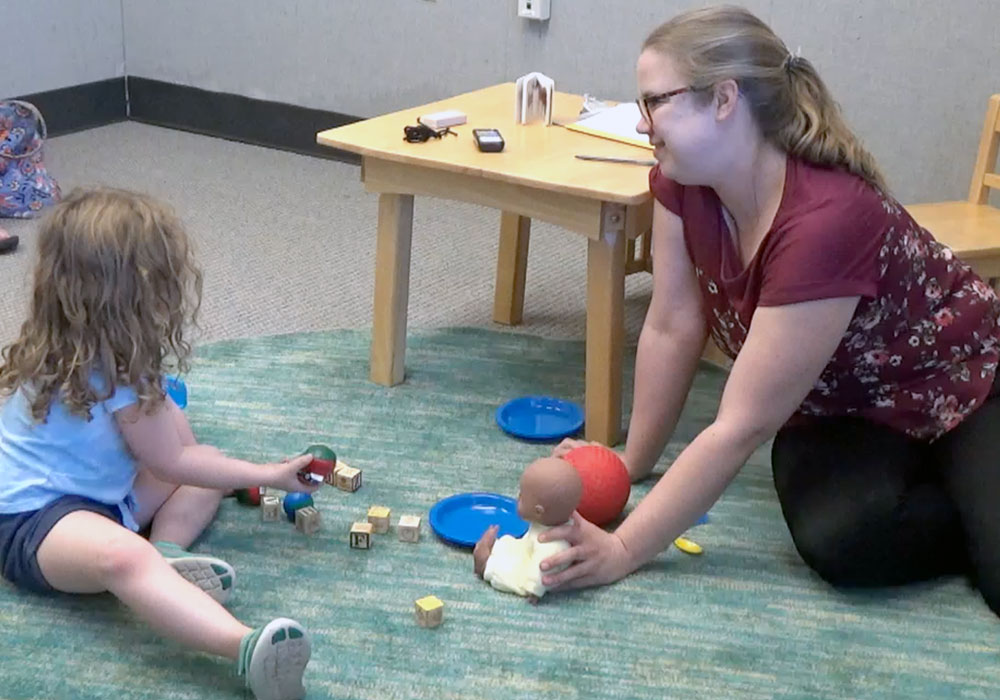Prevalence of autism among children is rising, but access to new, evidence-based interventions is often spotty at best, an obstacle that one University of South Carolina clinician hopes to improve through her research.
“I'm trying to improve and fine tune evidence-based supports and interventions for autistic children and adolescents and their families, and, through implementation science, I'm trying to improve access to those interventions to support autistic kids in actual community settings,” says Sarah Edmunds, an assistant professor of psychology and an affiliate scientist in the Carolina Autism and Neurodevelopment Research Center.
While academic clinicians in recent years have amassed a substantial set of effective therapies for those on the autism spectrum, much of it is not accessible to the public at large, Edmunds says. “It’s called the implementation gap. It takes about 17 years for an evidence-based intervention or therapy to make it from the research phase at a university to actually being available in any sort of clinic or setting that the average person might find,” she says. “That’s not acceptable.”
In her current research, Edmunds is investigating the usefulness of several emerging therapies for autism collectively called Naturalistic Developmental Behavioral Interventions with an eye toward adapting them to address individual children’s needs.
“One person on the spectrum might be comfortable with their basic communication skills, but they might have a really hard time with social chit chat, or a parent might say their child can communicate their wants and needs, but what they really need is support for meltdowns or a specific part of their routine they need to learn to be more flexible in,” Edmunds says.
"It takes about 17 years for an evidence-based intervention or therapy to make it from the research phase at a university to actually being available in any sort of clinic or setting that the average person might find. That’s not acceptable."
“I want to make sure that a specific intervention, as written in the manual, is acceptable to the families that want to use it, and I’m ready to adapt and tailor the intervention in any way that’s needed while keeping the core components going forward that we think are most effective.”
“For example, my collaborators and I have created a method for defining the core components of interventions, and we did this with an NDBI called Reciprocal Imitation Teaching before we started a study evaluating how effective RIT is when taught to early interventionists across four states.”
Cultural and family differences may affect how good of a fit an intervention is. For example, some families have cultural backgrounds in which parents don’t have dedicated play time with their children, which would seem to preclude the use of play-based interventions. But even those situations can be adapted, Edmunds says, by changing the way therapists teach parents to try the strategies with their children.
“Perhaps we cut out most of the play time suggestions and focus on interactions during snack time, bath time and bedtime routines,” she says. “It’s just a way to tailor interventions and make them accessible to more people.”
Ultimately, implementation of new, evidence-based therapies won’t increase unless there is a scientific examination of what support is needed, whether it’s policy change or better training or other implementation support, Edmunds says. “We have to find the best methods for getting these interventions out into the world.”
Edmunds joined USC’s Department of Psychology in 2021 after earning a bachelor’s degree from Cornell University and a doctoral degree in clinical psychology from the University of Washington. Her interest in autism therapy was sparked by a college course taught by an autistic professor. Edmund’s lab at USC is called the Community-Oriented Lab for Autism and Behavioral Interventions.
